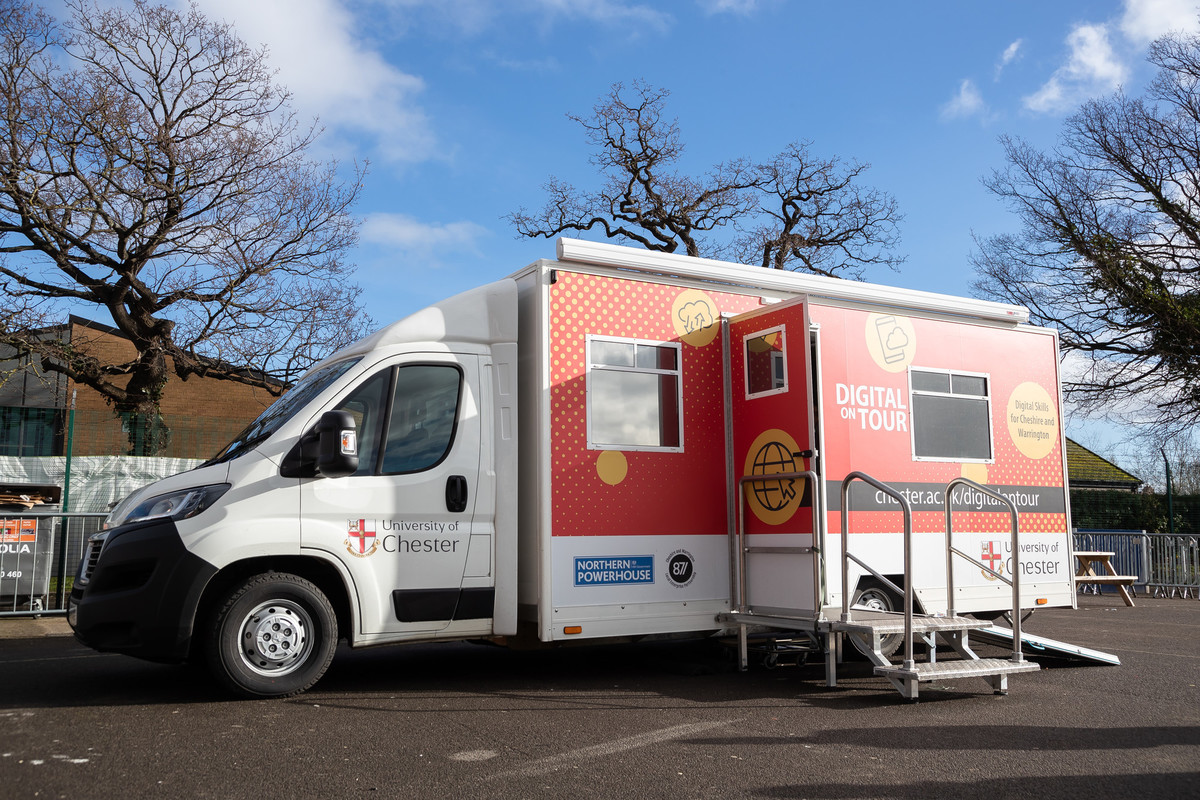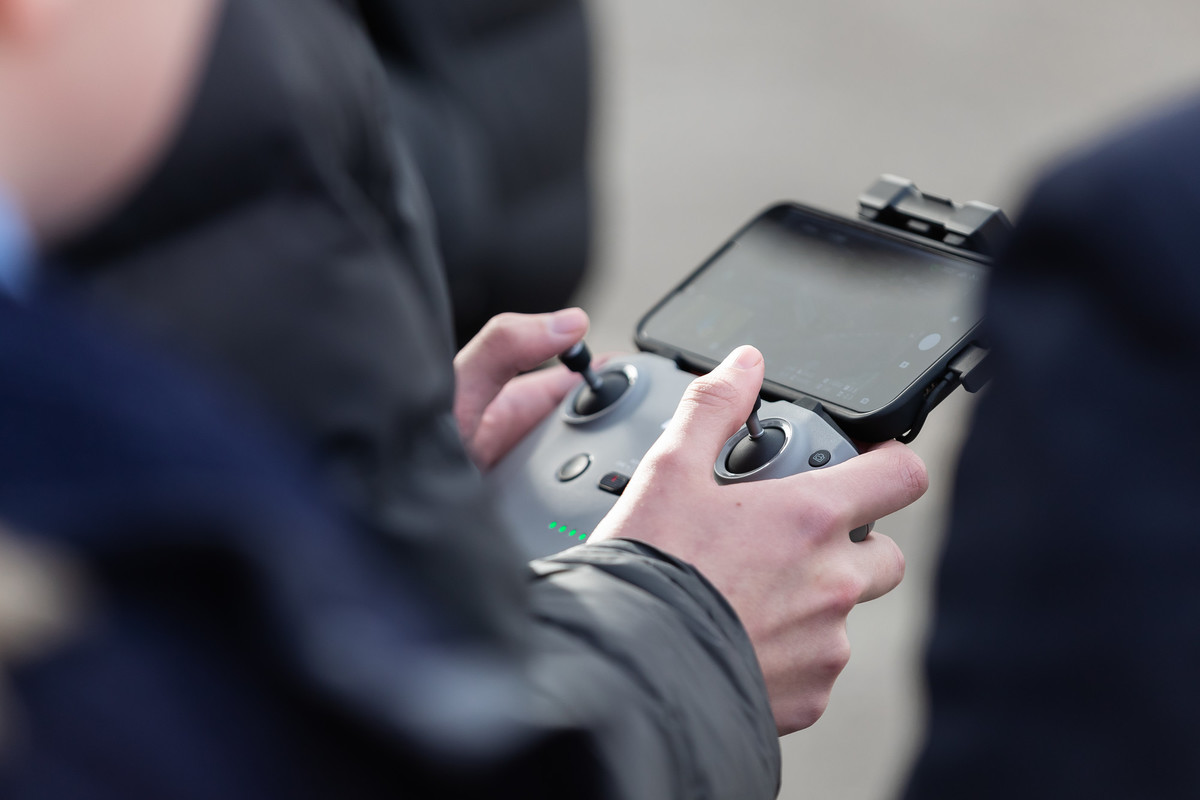Digital on tour

The University of Chester received capital equipment funding from Cheshire and Warrington Local Enterprise Partnership (LEP) to help develop Digital Skills within Schools, Further Education, Higher Education and Business.
The Special Projects office, working with SED, University Outreach and Higher Horizons, is keen to understand how the equipment can help support your existing outreach activity in the promotion and development of Digital Skills within your subject area.
Examples of digital skills include:
- Cloud Computing
- CAD
- 3D Modelling, Scanning, Visualization and Manufacture
- Data Science - Data visualization, Data analysis, Machine learning
- Cyber Security
- Internet of Things
- Media production
- Video and online collaboration
- High Performance Computing – Parallelization and Graphics processing
- General ICT

Digital on Tour – Digital Skills for Cheshire and Warrington
